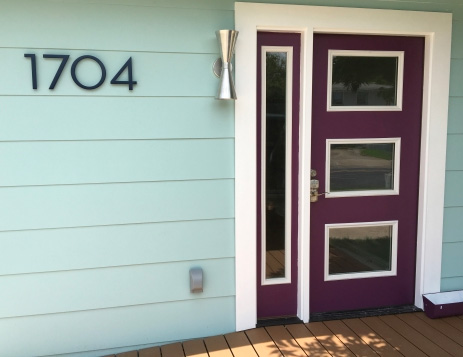Parenting is really hard work. Some days are harder than others, and
everybody loses their temper sometimes. The parents I work with
acknowledge this truth, but also want to grow and change. They want to
lose their tempers less frequently, and when they do succumb-they want
the overall experience to be yet further muted. So how to stay calm is
an important, and common topic in my office-especially for those
parents who didn’t have role-models for calmness in their own
childhoods.
Today’s post is taken with permission from the newsletter of
Celebrate Calm, written by Kirk Martin. Kirk is a father who has
created a program to help families, schools, and churches better
respond to kids with ADHD. Here’s what he says about how to keep the
calm in your home:
Control yourself. Realize that we cannot control our
kids, nor should we want to. Our primary job as parents is to control
ourselves and model proper behavior. How many of us throw our adult
tantrums when something goes wrong, then expect our children to remain
calm?Make a conscious choice to remain calm no matter what your child or
spouse does. Screaming, or withdrawing emotionally, only makes the
situation worse. When we are calm, we can problem solve instead of
creating more problems.Have self-respect. We are not responsible for our children’s
behavior, attitudes and actions. If my son is in a bad mood, so be it.
I choose not to give in to or join his pity party. If your child comes
into the kitchen barking orders and being rude, you are not obligated
to respond. Walk away calmly, go about your business and let your child
know when he’s ready to talk and be polite, you’ll help him with
breakfast.If my son refuses to do his homework, then he will suffer the
consequences at school. Our children need to learn that they are
responsible for their choices and I am responsible for mine.Assume a calm posture. Each time I enter my teenage son’s room, I
ask myself, “Do I want to have a conversation or a confrontation?”
Instead of standing in his doorway barking orders, I sit down and put
my feet up on the ottoman. It is impossible to yell and lecture when
you assume a calm posture.Take care of yourself first before trying to take care of others.
Exercise, walk your dog, pray, listen to music, whatever helps you be
calm. Make a decision that no matter what your child or spouse does,
you are only responsible for your actions. This liberates parents and
frees children to be responsible for their choices.Be the calm. When your home is spinning out of control, draw others
into your calm by sitting down and coloring or reading a book. Let
everyone else know that you are in control. You’ll be surprised at how
your children (and spouse!) begin to calm down once you do.
I absolutely love the image of the father sitting down in a chair,
feet up, to have a conversation with his son. The tone and likely
outcome of the conversation will be so much better as a result of the
father’s proactive choices. And actually, this trick would be useful in
many different relationships-spouses included. Another trick in the
same category is to purposefully slow your physical movements-a lot.
This is especially true when parenting toddlers, as they absorb our
energy directly. If, for example, your toddler is misbehaving and you
need to pick her up-try doing it in slow-motion. It’s likely that she
will (a) not get even more wild in response to your response…, and (b)
hopefully absorb some calm, quiet energy instead.
One final thought of my own… while all of the above suggestions are
good, I suggest working on taking care of yourself first. When self
care is lacking, everything else is harder to handle. It’s almost
impossible, for example, to stick with a conscious choice to stay calm
if you’re stressed, hungry, and tired to begin with. So, getting
yourself back up to the ‘baseline’ is first, and then you can tackle
the other steps.
Good luck!








